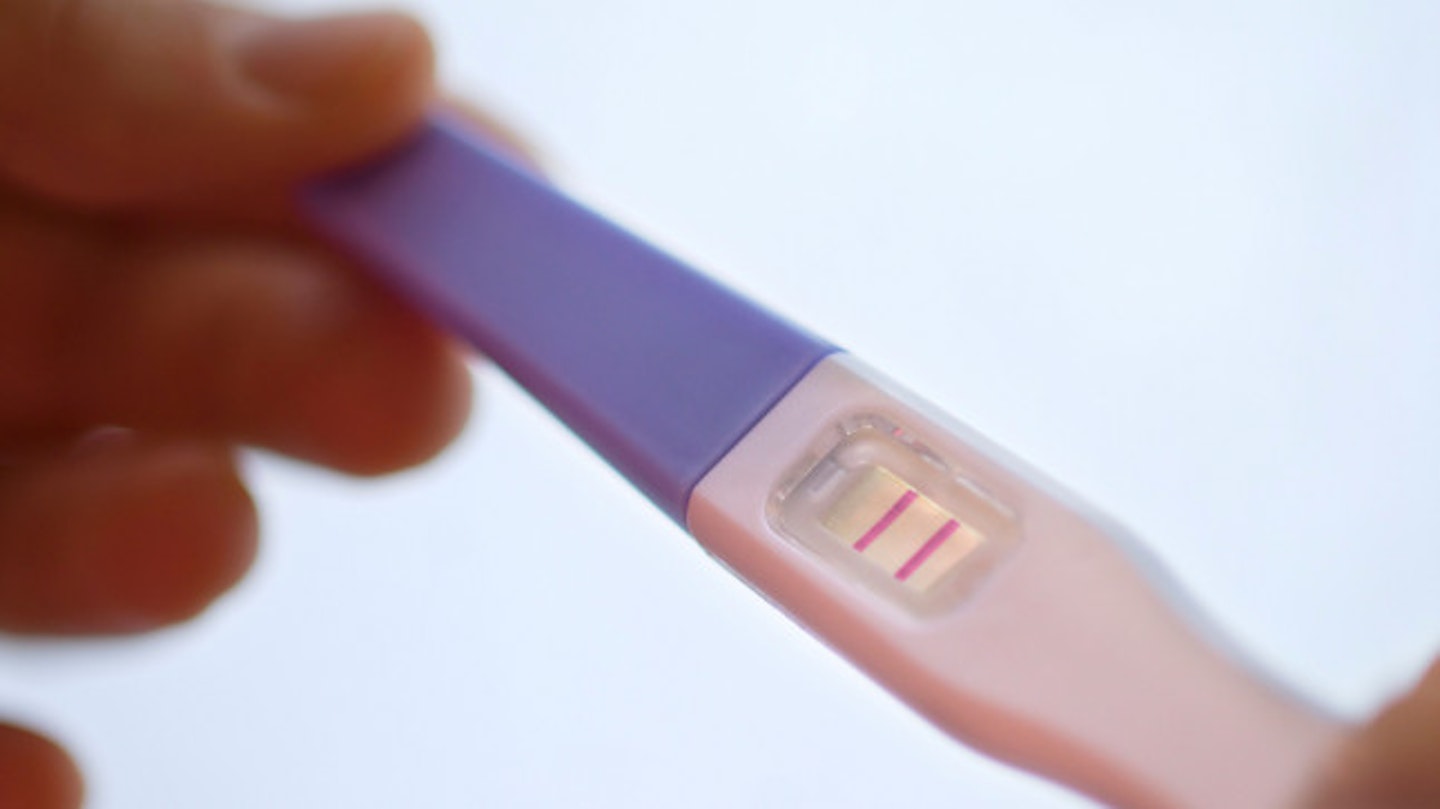WHAT IS AN ECTOPIC PREGNANCY?
Ectopic pregnancy affects 1 in 80 pregnancies - and can be life-threatening if not diagnosed immediately.
Put simply, it means an “out of place” pregnancy.
It occurs when a woman’s fertilised egg gets stuck somewhere outside the uterus, such as the fallopian tube (most common), a C-section scar, an ovary, the cervix, or directly in the abdomen.
When this happens, the embryo continues to grow until the fallopian tube ruptures, resulting in severe abdominal pain and bleeding.
This can cause permanent damage to the tube or loss of the tube, and, if it involves very heavy internal bleeding that's not treated promptly, it can even lead to death.
That's why early diagnosis, immediate treatment, and follow-up care are so important.
WHEN IS AN ECTOPIC PREGNANCY MOST LIKELY TO HAPPEN?
Ectopic pregnancy usually happens within the first few weeks of pregnancy. You might not even know you're pregnant yet, so it can be a big shock.
WHO IS AT RISK OF AN ECTOPIC PREGNANCY?
Any sexually active woman of childbearing age is at risk of an ectopic pregnancy and often the reason for the ectopic pregnancy will never be determined.
However, medical experts have determined that ectopic pregnancies are more likely if you have:

IS ECTOPIC PREGNANCY HEREDITARY?
It is not a condition which passes from parent to parent - you are no more at risk of an actinic pregnancy than anyone who’s immediate family have suffered.
IS ECTOPIC PREGNANCY RELATED TO ABORTION?
Absolutely not.
The Ectopic Pregnancy Trust explain: “Abortion is not linked to ectopic pregnancy.
“We would ask anyone struggling with this issue to please be gentle with yourselves and don’t believe everything you read on the web, in the news, or in magazines.
“Always check the source of the figures that are quoted. Most of all, don’t beat yourselves up for something that cannot be changed and is unlikely to have contributed anyway.”
IS SMOKING LINKED TO ECTOPIC PREGNANCY?
Some studies suggest that smoking is linked to ectopic pregnancy, as there is a theory that cigarettes can impair the normal functioning of the fallopian tubes.

WHAT ARE THE SYMPTOMS OF AN ECTOPIC PREGNANCY?
Symptoms can appear early in a pregnancy and often vary from woman to woman.
In some cases, women will experience no symptoms until the ectopic pregnancy has ruptured.
Symptoms include, but are not restricted to, the following:
More serious symptoms include, but are not restricted to, the following:
***If you are experiencing any of the symptoms listed above, call NHS Direct on 111, or contact your doctor or midwife immediately.
If neither of these options are possible, then please visit your local Accident and Emergency (A&E) department.
***
HOW CAN I TELL IF MY BLEEDING IS ABNORMAL?
If you don’t know whether you are pregnant but find yourself having an unusual period, it may be due to a number of causes, one of which might be an ectopic pregnancy, particularly if you have had a coil (IUCD) fitted.
The Ectopic Pregnancy Trust advise: “If your bleeding is heavier or lighter than usual and prolonged or if, unlike your normal monthly period, this bleeding is slight, dark and watery, you should tell your doctor as soon as possible.
“You should be aware of any change in the bleeding you are experiencing. If it becomes very heavy, causing you to soak a pad in less than an hour, or if you soak a pad in two hours with this level of flow continuing for more than 4 hours, you should have this checked out.”
Getting to the hospital quickly is important to reduce the risk of haemorrhaging (severe bleeding).

HOW IS AN ECTOPIC PREGNANCY DIAGNOSED?
Ectopic pregnancy is often very tricky to diagnose. This is because it often presents with symptoms that can be suggestive of other conditions, such as gastroenteritis, miscarriage or even appendicitis.
The more you can tell your doctor (focus on what has changed, what is worrying you, and your symptoms), the more likely they are to be able to diagnose you.
If your symptoms suggest an ectopic pregnancy, medical staff will usually begin by giving you a urinary pregnancy test.
They will then go on to give you an ultrasound, so that they can search for the foetus, and a blood test to try to confirm a diagnosis.
The Ectopic Pregnancy Trust say: “Please do be vigilant and take symptoms that concern you seriously until absolutely proven otherwise.
“If your instincts are screaming at you that something doesn’t feel right, it’s OK to trust them and ask medical professionals for a reassessment at any time.”
HOW IS AN ECTOPIC PREGNANCY TREATED?
Treatment depends on how clear the diagnosis is, how big the embryo is, and the techniques available.
SURGICAL MANAGEMENT
Surgical management is the most established form of treatment and means performing an operation to remove the ectopic pregnancy while you are under general anaesthetic.
Depending on whether doctors opt for keyhole surgery or not, you could be in hospital between one and five days after your operation.
When you are discharged, the ward staff will give you all the necessary advice on aftercare, exercise and diet. Stitches are usually dissolvable and should dissolve completely after 1 week.
METHOTREXATE [NON-SURGICAL OPTION]
If you are in reasonably good health and in the earlier stages of pregnancy, the drug Methotrexate may be used.
It will usually be delivered via a single injection into a muscle, so that it can reach the embryo through your bloodstream.
It will end the pregnancy by stopping the cells of the placenta from growing and, over time, the tiny embryo will be reabsorbed into your body.
This method has been developed to avoid surgery, but it does require close monitoring and regular follow-up blood tests at your local hospital or surgery.
If you experience any signs of rupture (such as severe abdominal pain, shoulder pain, or heavy bleeding), or signs of shock (such as a weak, racing pulse; pale, clammy skin; and dizziness or fainting) during this process, call 999 immediately.

CAN THE EMBRYO BE MOVED INTO A SAFER POSITION?
It is, sadly, not possible to move an ectopic pregnancy.
CAN I HAVE A SUCCESSFUL PREGNANCY AFTER I HAVE HAD AN ECTOPIC ONE?
Yes - 65% of women are healthily pregnant within 18 months of an ectopic pregnancy.
The earlier you end an ectopic pregnancy, the less damage you will do to that tube and the greater your chances of bringing another baby to term. And, even if you do lose one of your tubes, you can still become pregnant without the help of fertility procedures if your other tube is normal.
HOW LONG SHOULD I WAIT BEFORE TRYING TO CONCEIVE AGAIN?
It is likely you have been advised to wait for three months or two full menstrual cycles (periods), whichever is the soonest, before trying to conceive.
WHEN IS IT SAFE TO HAVE SEX AGAIN?
The Ectopic Pregnancy Trust say: “If you are being treated with Medical Management (Methotrexate) or are being Expectantly Managed, you should avoid sexual activity which involves penetration until your hCG blood levels are down to less than 5 <mIU/mL.
“As hCG levels drop, the risk of rupture diminishes but, unfortunately, the risk remains even with very low hCG levels. For this reason we advise anything that increases intra-abdominal pressure, such as sexual intercourse, is best avoided.”
If this is not the case, many doctors suggest waiting around six weeks before having penetrative sex again, so as to give your body time to recover.

AM I LIKELY TO HAVE ANOTHER ECTOPIC PREGNANCY?
There is, according to UK studies, a 10% chance that you will have a repeat ectopic pregnancy after your first.
This number increases after every other ectopic pregnancy.
HOW CAN I DEAL WITH MY EMOTIONS AFTER AN ECTOPIC PREGNANCY?
You may experience fear anger, sadness, and guilt after an ectopic pregnancy, and, in the immediate aftermath, be left feeling vulnerable.
It is important to remember that that the ectopic pregnancy was not your fault and that there was nothing you could have done to prevent it happening.
The Ectopic Pregnancy Trustsay: “In ectopic pregnancy you lose a baby, part of your fertility, face your mortality (risk to your life) and are left with huge unanswered questions about the future.
“It is only natural that you will experience many emotions.“
Be sure to speak to people about how you are feeling - and contact the charity MIND if you feel you need help in making sense of your feelings.
Make sure that you give yourself time to recuperate emotionally and physically - and do not be afraid to be honest with the people around you, especially your partner, about how you are feeling. Let them know how you need them to help you through this difficult time.
WATCH: Widow shares her incredible weight loss transformation
READ MORE
Dr Christian: ‘You CAN be pregnant with absolutely no symptoms at all’
